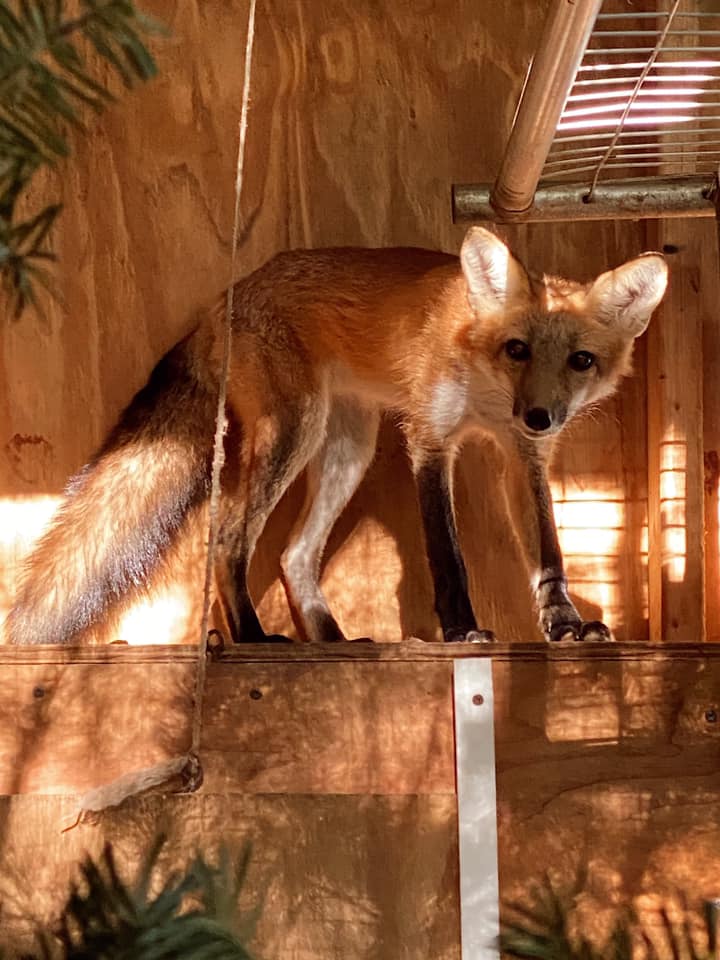
I found an injured/orphaned animal!
We take bats, small to medium-sized mammals (squirrels up to foxes)
If you have found an injured, sick or orphaned wild animal, please call or text our wildlife hotline at (207) 420-7159 or your local wildlife rehabilitator. Follow the flowcharts below to decide whether to intervene. Please do not apprehend an injured animal if you don’t feel comfortable: animal control officers are often happy to lend a hand. Find who your ACO is by clicking the link. Find a Maine ACO
How to safely contain a wild animal (for transport to a licensed wildlife rehabilitator)
- Find a suitable container such as a cardboard box, or pet carrier. Line it with a towel or cloth. For potentially difficult or hard-to-handle wildlife, try using a humane live trap. If you plan to use a trap, please call Saco River Wildlife Center for guidance. Use extra caution with mammals.
- Otherwise, throw a towel or a sheet over the animal so he can’t see you, gently pick up the animal (wearing gloves/eye protection), and place in the container. You don’t need to remove the towel, but loosen it. Secure the container to make sure the animal cannot escape.
- Keep the animal in a warm, dark, quiet place away from people and pets. Do not give him food or water. Leave him alone. Please resist the urge to handle or take photos as this will cause stress, and resist the urge to feed baby animals. Most of what the Internet claims they can eat is not correct and will cause significant health issues.
- Take the animal to a licensed wildlife rehabilitator as soon as possible (see above on how to find one).
If you would like more information regarding the animal you find or if you are not sure what to do, call/text SRWC at (207) 420-7159.
Thank you for helping injured and orphaned wildlife!

ALWAYS WEAR GLOVES WHEN HANDLING ANY WILD ANIMAL. Get the animal in a cat/dog carrier or a secure box with breathing holes. Keep everything as dark and quiet as possible while you call for help- stress can kill! Go here to learn more.
Rabies is a deadly disease in mammals caused by a virus; the most common method of transmission is through a bite wound. Any mammal (including humans) can contract rabies. In nearly all cases, rabies is fatal – prevention is the key.
Many wild animals, including spring and summer babies, are needlessly killed and tested for rabies because people handle them without protection. For your safety and for the life of the animal, always wear gloves when handling wildlife.
Touching a baby animal will NOT cause its parents to reject it. This is a myth!
Remember, it’s illegal to rehabilitate wildlife without a permit, and illegal to keep wild animals as pets.
Sick, injured, or orphaned bird? Try the Center for Wildlife (207-361-1400) or Avian Haven (207-382-6761).If you’ve found a stranded marine mammal or seal pup along the coast, call the Marine Mammals of Maine Hotline at 1-800-532-9551. You can visit their website for more information here.

